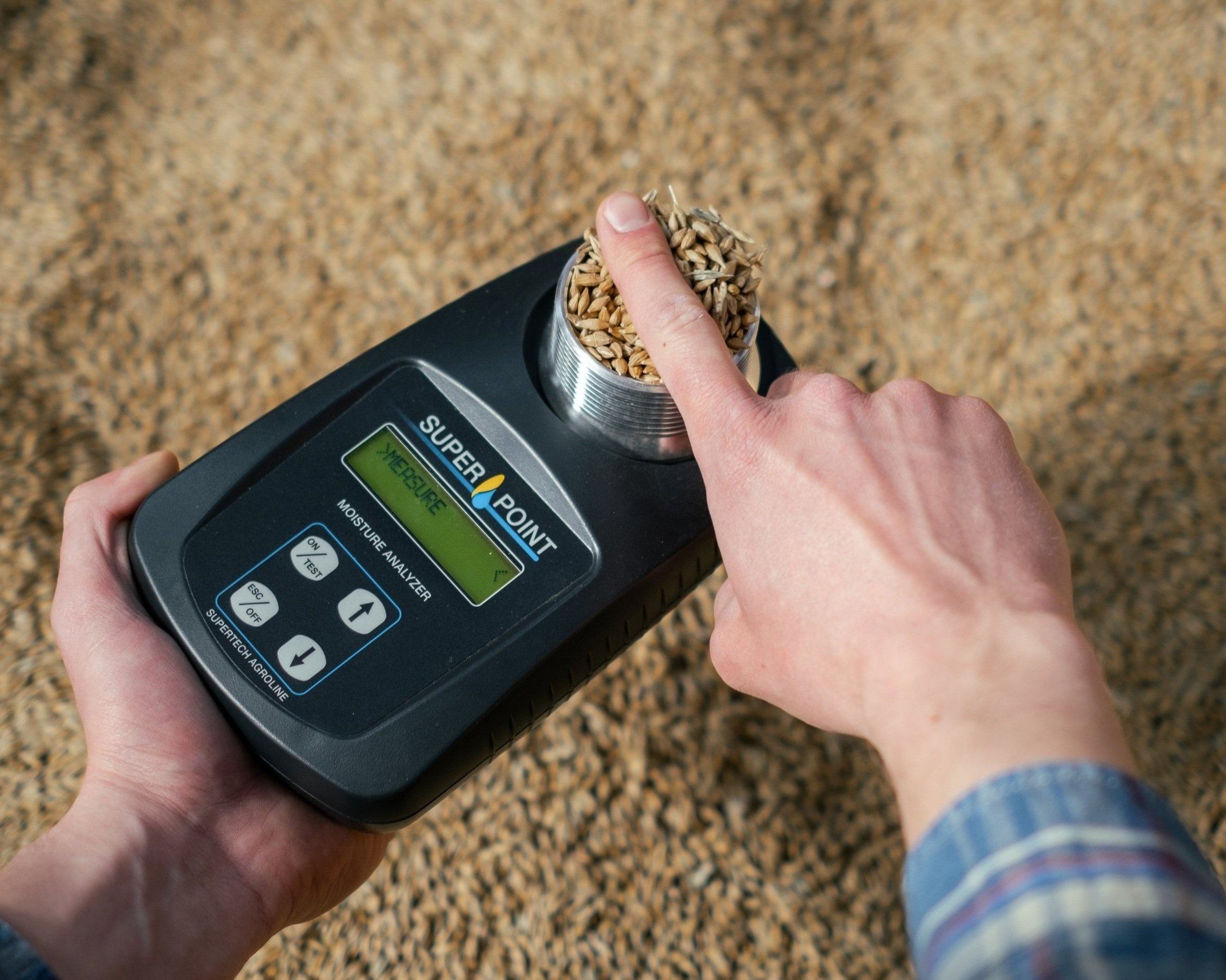Why Every Property Owner Needs a Moisture Meter: Trick Advantages and Features
Why Every Property Owner Needs a Moisture Meter: Trick Advantages and Features
Blog Article
The Ultimate Guide to Moisture Meters: A Comprehensive Overview and Just How They Can Conserve You Cash
In the realm of building maintenance, construction, and different industries, the relevance of accurately measuring moisture degrees can not be overstated. Moisture meters function as crucial devices in finding and keeping an eye on moisture web content in materials, assisting in preventing expensive damages and guaranteeing the quality of products. Comprehending the nuances of various sorts of dampness meters, their applications, and the possible cost-saving benefits they use can be a game-changer for businesses and professionals alike. Discovering how these devices can not only enhance procedures but additionally contribute to monetary cost savings is a trip worth starting.
Kinds of Wetness Meters
One usual type is the pin-type moisture meter, which gauges the electrical resistance in between 2 pins placed right into a material. Pinless moisture meters, on the various other hand, use electro-magnetic sensing unit plates to check a larger location without creating damages to the product's surface.

Moreover, there are likewise specialized dampness meters created for certain products like dirt, grain, or hay. These meters offer exact moisture readings customized to the one-of-a-kind residential or commercial properties of the material being checked. Infrared wetness meters measure the thermal buildings of a product to determine its dampness content non-invasively, making them helpful for applications where pin or pinless meters might not be suitable. Understanding the different kinds of dampness meters readily available can aid sectors select the most ideal device for their details dampness dimension requirements.

Advantages of Making Use Of Dampness Meters
Moisture meters provide invaluable benefits in precisely assessing and monitoring wetness levels in diverse materials and atmospheres. One of the key benefits of making use of dampness meters is the prevention of potential damage triggered by excess dampness.
Moreover, making use of wetness meters can lead to boosted power efficiency. By recognizing locations with high wetness levels, such as leakages or inadequate insulation, changes can be made to improve energy conservation and minimize energy prices. In farming settings, moisture meters play an important duty in optimizing plant yields by allowing farmers to keep an eye on dirt wetness levels and make notified irrigation choices. Overall, the advantages of utilizing dampness meters extend throughout different markets, offering affordable services and promoting far better quality assurance practices.
Just How to Pick the Right Dampness Meter
Selecting the proper dampness meter entails considering essential variables such as product compatibility, measurement range, and calibration accuracy. When choosing a wetness meter, it's vital to make certain that the meter appropriates for the specific material you will certainly be testing. Various materials have differing electric properties that can affect wetness readings, so picking a meter designed for your product is essential for exact outcomes. Furthermore, take into consideration the measurement series of the wetness meter. Ensure that the meter can find dampness degrees within the range needed for your applications. Calibration precision is one more crucial element to keep in mind. Go with a moisture meter with trusted calibration to guarantee exact and consistent analyses. Some meters may require periodic calibration modifications, so recognizing the calibration process is crucial. By carefully assessing these elements, you can choose a dampness meter that fulfills your needs and gives accurate dampness measurements for your jobs.
Appropriate Techniques for Dampness Meter Use

Expense Savings Through Moisture Meter Applications
Just how can the critical application of wetness meters lead to considerable cost financial savings throughout numerous industries? In the agriculture market, wetness meters help in figuring out the optimum time for collecting plants, preventing excess or over-drying moisture that can influence the final product's quality.
Similarly, in building and construction, dampness meters aid avoid expensive damages by identifying wetness degrees in building materials, such as timber or concrete, which can lead to structural problems otherwise attended to without delay. By determining trouble locations early on, service providers can take corrective measures to prevent considerable repairs or replacements, inevitably saving time and cash.
Additionally, in the food handling market, wetness meters are necessary for keeping track of item top quality and making sure conformity with safety regulations. By properly measuring dampness web content in food, manufacturers can protect against perishing, preserve freshness, and reduce waste, leading to considerable price savings. Generally, the calculated application of moisture meters is a valuable financial investment that can bring about substantial price decreases and improved effectiveness throughout various industries.
Final Thought
In conclusion, dampness meters are useful devices for gauging and spotting moisture degrees in various products. By making use of the appropriate moisture meter and following appropriate methods, users can properly avoid expensive problems triggered by excess wetness. Spending in a quality dampness meter can lead to considerable cost savings in the future by recognizing potential concerns early and making it possible for timely remediation. Ultimately, dampness go to my blog meters are essential instruments for special info keeping the integrity and longevity of materials and structures.
Moisture meters offer as vital devices in detecting and checking moisture material in products, aiding in stopping expensive damages and making sure the quality of products. Infrared wetness meters determine the thermal residential or commercial properties of a material to establish its wetness web content non-invasively, making them helpful for applications where pin or pinless meters may not be ideal.Dampness meters supply indispensable benefits in properly keeping track of and examining moisture degrees in diverse materials and atmospheres. In farming setups, moisture meters play a crucial role in maximizing plant yields by making it possible for farmers to keep an eye on dirt moisture degrees and make notified watering choices.In conclusion, dampness meters are beneficial devices for determining and finding moisture levels in different products.
Report this page